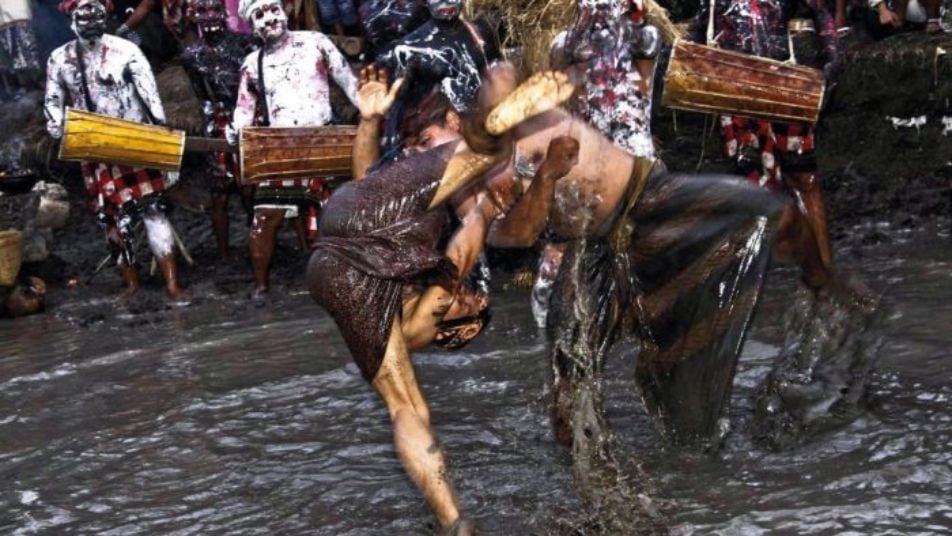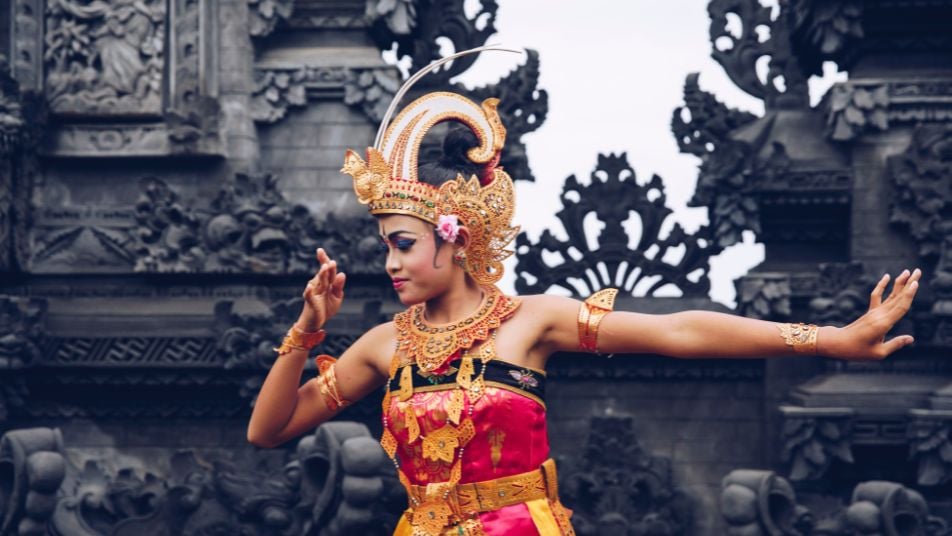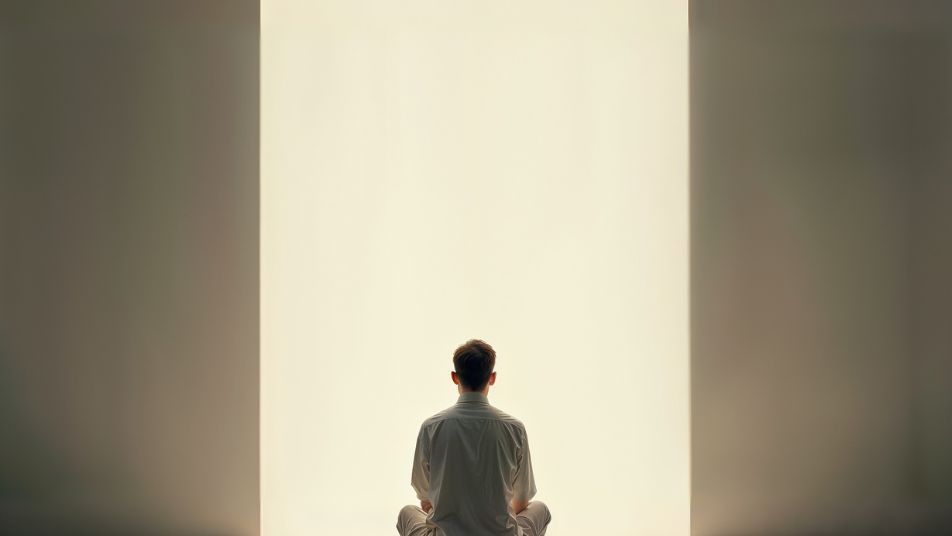Mepantigan Bali: History, Live Experience, and the Spiritual Philosophy Behind It
by Dijiwa Sanctuaries

Mepantigan Bali: History, Live Experience, and the Spiritual Philosophy Behind It

Source: Mepantingan
Mepantigan is a traditional Balinese martial art performed in mud, combining wrestling techniques with local culture, rituals, and philosophy. More than just a physical sport, Mepantigan offers a meaningful experience of unity with nature, community values, and joyful expression. Today, it has evolved into an immersive cultural attraction that captivates both domestic and international travelers looking for something beyond Bali’s beaches and temples.
What Is Mepantigan?
Mepantigan comes from the Balinese word pantig, which means “to slam” or “to throw.” In essence, Mepantigan is mud wrestling—where two participants grapple in a muddy arena. But unlike ordinary wrestling, Mepantigan is infused with traditional music, symbolic movements, and spiritual rituals, making it a form of living art.
Often promoted with the motto “Happy, Healthy, Harmony,” the experience is not only entertaining but also restorative. Participants enjoy full-body movement in nature, reconnect with the earth, and laugh freely, all while learning about Balinese values.
History and Origins of Mepantigan
The roots of Mepantigan trace back centuries, when Balinese warriors used mud fields to practice combat techniques. Farmers also played similar games after harvests as a form of physical exercise and thanksgiving. In many villages, mud wrestling was part of rituals to honor Dewi Sri, the goddess of fertility, symbolizing gratitude for fertile soil.
In the early 2000s, Balinese culturalist and taekwondo athlete I Putu Witsen Widjaya reintroduced Mepantigan in a structured format. He blended elements of pencak silat, taekwondo, Balinese dance, and spiritual teachings to form a formal martial arts curriculum. A unique feature he introduced was the use of a bamboo tube filled with water as a natural timekeeper—when the water runs out, the match ends.
Where to Watch Live Mepantigan in Bali
You can watch and even participate in Mepantigan at two main locations:
1. Pondok Mepantigan, Batubulan Village (Gianyar)
This cultural arena offers full experiences including live performances, mud wrestling classes, and traditional food. Visitors are welcomed with gamelan music and ritual greetings before entering the mud arena. It’s perfect for families, groups, or solo travelers seeking cultural immersion.
2. Ubud’s Rice Field Arenas
Ubud’s lush terraces are another hotspot for Mepantigan, often featured during harvest festivals or tourism events. Some eco-resorts even organize weekly mud wrestling shows as part of their guest activities. It’s common to see matches surrounded by rice paddies, with offerings and gamelan music adding to the sacred atmosphere.
Both locations provide safety equipment, instructors, and cultural guidance, making it safe and enjoyable for tourists of all ages.
Philosophy Behind Mepantigan
Mepantigan emphasizes core Balinese principles: respect, compassion, balance, and harmony with nature. Participants are taught to wrestle not with anger, but with empathy and mutual respect. Matches often end with a symbolic hug, reinforcing community values.
Before each match, players honor Dewi Sri with a short offering ritual, acknowledging the sacredness of the land. Performances may be accompanied by baleganjur (traditional Balinese percussion) and sometimes open with movements inspired by the kecak or baris dances.
Clothing is also symbolic. Fighters wear poleng cloth (black-and-white checkered fabric) or tri datu (red-black-white), representing balance and spiritual forces in Balinese Hinduism. Wrestling in mud is viewed not as getting dirty, but as spiritually cleansing—connecting directly with earth and water, two vital elements in Balinese cosmology.
Why Mepantigan Appeals to International Tourists
Tourists are drawn to Mepantigan because it offers something rare: a chance to engage in a local tradition that’s interactive, educational, and incredibly fun. It's aligned with the growing trend of eco-cultural and wellness tourism, where travelers seek meaningful experiences rather than passive sightseeing.
Instead of just watching, visitors can join the activity. Covered in mud from head to toe, laughing while slipping, and learning ancient techniques—it all becomes a joyful memory. Some describe it as “the most refreshing part of their Bali trip.”
Even global celebrities have tried it. Kim Kardashian and her family once joined a Mepantigan session in Bali, gaining international attention for the tradition. Former First Lady of Japan Dewi Soekarno has also attended, further boosting Mepantigan’s global reputation.
A Living Cultural Heritage in Bali
Mepantigan is more than sport—it’s a celebration of Balinese identity, sustainability, and spiritual connection with nature. As more travelers seek authentic and conscious tourism experiences, Mepantigan stands out as a meaningful, joyful, and accessible entry point into the heart of Balinese culture.
If you're planning a trip to Bali and want something beyond the typical beach or temple visit, join a Mepantigan session. Embrace the mud, learn the philosophy, and discover why this ancient practice continues to inspire locals and visitors alike.
If you're planning a trip to Bali and want something beyond the typical beach or temple visit, join a Mepantigan session. Embrace the mud, learn the philosophy, and discover why this ancient practice continues to inspire locals and visitors alike.
For a stay that matches the spirit of Bali’s culture and natural charm, choose one of the boutique retreats by Dijiwa Sanctuaries. Their thoughtfully designed accommodations offer the perfect balance of comfort, serenity, and authentic local experience.

